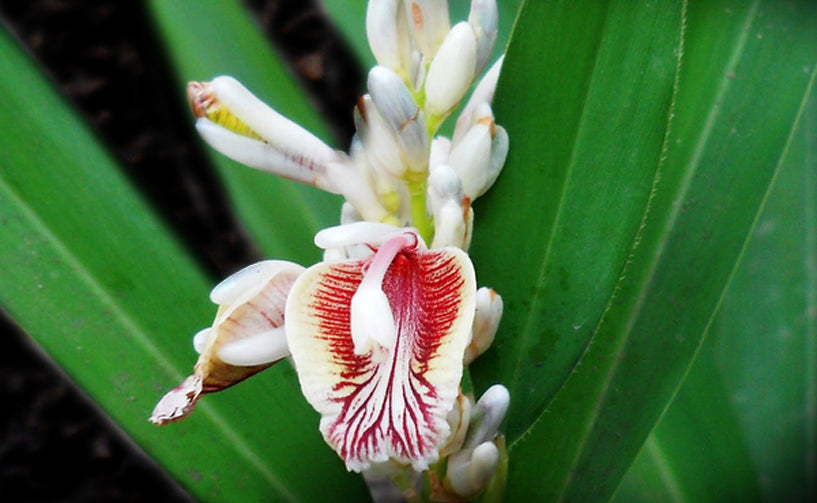Pluchea lanceolata from the family Asteraceae (sun flower family), also known as Rasna, is a perennial her. It has beautiful small yellow flowers and fresh roots that give a pleasant aroma of camphor. Rasna is considered as the most valuable herb for treatment of anti-inflammatory disorders. Triterpinoids, flavonoids, lactones and sterols from Rasana manage various health issues. It is widely grown in India, Western Africa and Afghanistan. In India it is primarily found along the sandy areas of Rajasthan and other tribal regions. Rasna is a Sanskrit word which means tongue like leaves
Rasna herb is well-known in indigenous systems of medicine for its therapeutic benefits in arthritis and joint pain. In ancient times, it was externally used as a poultice at the site of inflammation, pain and swelling.
Rasna leaves are used as a laxative, antipyretic, anti-inflammatory, muscle relaxant, analgesic, anti-aging, immunosuppressant and a nervine agent. The decoction from leaves is a useful remedy for joints, gout, back pain, amoebic dysentery, constipation, neurological disorders such as Parkinson’s disease and rheumatism. Sometimes roots of Rasna are given to reduce the pain associated with poisonous insect bites.
Rasna and its various preparations are well documented in Ayurveda. Rasna is a pungent, heavy, anti-toxic and a slightly bitter herb. Rasna leaves can be used both internally and externally, in the form of a powder, decoction or as an ointment. In India, Rasna is also known as sugandha because of its pleasant smell. Rasna is useful for aggravated kapha and vata type of diseases. It is a very good pacifying or calming herb.
Active components which provide therapeutic benefits to Rasna are a complex mixture of bio-active Phytochemicals like B-sitosterol, taraxosterol, quercetin, rahmnetin, sterols, glycosides, pleuchiol, triterpinoids, phenolics (flavonoids, tannins), polysaccharides, mucilage and volatile compounds.
Benefits of Rasna
-
Arthritis and Bones: It has anti-arthritic properties and is used in several preparations and composition for rheumatoid arthritis and related issues. It particularly works to improve joint pain and reduce inflammation (swelling). Rasna has analgesic and antipyretic properties. It helps in rejuvenating the fluids around the joints.
- It is an effective remedy for management of joint disorders, arthritis and sciatica pain since it is a potent anti-inflammatory in nature.
- It works as a mild laxative and removes excess waste and fluids from the body.
- Works as a strong anti-microbial agent which helps in detoxification and weight loss.
- Rasna is a rejuvenating herb and works as an anti-aging agent.
- It is an effect remedy for the blood disorders, since it is a powerful blood purifier.
- Its decoction is used to inhibit respiratory disorders, cough, and breathing problem (COPD), asthma and chest pain.
- Rasna leaves are thermogenic and its paste provides relief from high body temperature.
- Rasna is a carminative which means it can relieve flatulence. Thus, it used in the various digestive disorders such as colic, indigestion, flatulence and the constipation.
- P. lanceolata is also used to treat ailments specific to women such as dysmenorrhea and amenorrhea. It is also helpful for some of skin diseases like eczema and skin rashes.
- Rasna is a useful remedy for anorexia, constipation, abdominal pain, dyspepsia.






